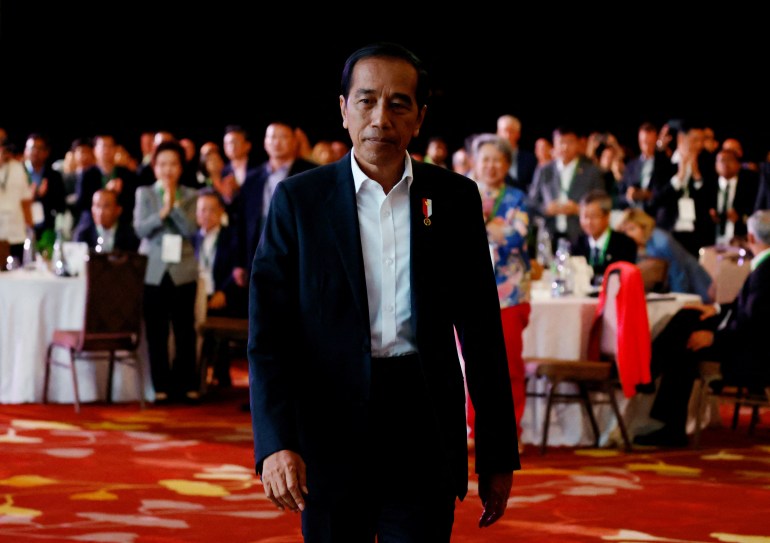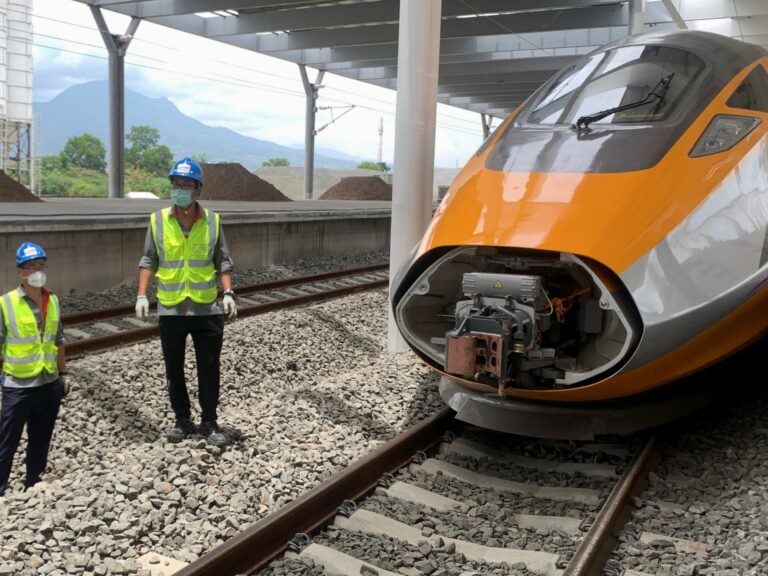Medan, Indonesia – Indonesia’s Chinese-funded high-speed train service has been delayed for the second time in less than a month, in the latest setback for the project plagued by cost overruns and local scepticism.
The trial launch of the $7.3bn Jakarta-Bandung high-speed service, scheduled for Friday, will not go ahead as planned, a spokesperson for the project said.
“Not yet. We are still awaiting a decision from the Ministry of Transportation,” the spokesperson said on Tuesday.
The China-funded project, which is being overseen by the PT KCIC consortium of Indonesian and Chinese state firms, was originally slated for completion in 2019 but has faced challenges since its launch, including a $1.2bn budget overrun and additional safety checks.
Local opposition
The project has also been greeted with scepticism by many residents and activists, who question the benefits of the service for the majority of the public in a country with a gross domestic product (GDP) per capita of less than $5,000.
“Users will only be the upper middle classes,” Meiki Paendong, the executive director of the Indonesian Forum for the Environment (WALHI) in West Java, told Al Jazeera.
“Other local residents or simple and poor family groups will find it difficult or will think twice before using it. According to reports, tickets will be in the 300,000 rupiah ($20) range. For the general public, it is too expensive.”
The trial service had originally been scheduled to begin on August 18, before being delayed again to September 1. The full service for the public is scheduled to launch on October 1.
Explaining the delay earlier this month, PT KCIC said that it needed more time to ensure passenger safety and comfort and that it was still awaiting additional operating permits.
The 142km (88 mile) rail line will connect Indonesia’s capital Jakarta with the city of Bandung, cutting the journey from three hours to about 40 minutes – an attractive prospect for passengers rushed for time.
Ahmad Zakie, a lecturer at Padjadjaran University in Bandung, said he would probably use the service if he were travelling to Jakarta and wanted to go to the Halim or the South Jakarta areas of the capital, where the train terminates.
“The short travel time is a major consideration, provided that our destination is the area around the station in Halim,” he told Al Jazeera.
“The most important advantage is the short travel time and we can experience new transportation like in developed countries.”

The Jakarta-Bandung line is among dozens of infrastructure projects in Indonesia being carried out under China’s Belt and Road Initiative, a global infrastructure initiative launched by Chinese President Xi Jinping in 2013.
Under Indonesia’s President Joko “Jokowi” Widodo, Jakarta has rolled out a range of ambitious development projects and goals, including relocating the capital to Eastern Borneo and aiming for a GDP per capita of $25,000 by 2045.
Trissia Wijaya, a senior research fellow at Ritsumeikan University in Kyoto, Japan, said the delays in the rail project pointed to flip-flopping between the Chinese and Indonesian sides.
“Especially, in terms of risk management, it seems to me that the two sides did not come to terms under the same terminology, even though the problem continues to be glossed over by the political narrative of both parties, because both sides depend on this project to create a legacy,” she told Al Jazeera.

At the G20 Summit in Bali last year, Xi and Widodo watched a livestream of a non-public test-run of the train service, with the Indonesian leader saying he “was optimistic that the high-speed train can operate in June 2023.”
“Watching the trial operation of the Jakarta-Bandung high-speed train and the video about China and Indonesia’s strategic cooperation, all of these are real achievements that not only provide prosperity to the people of the two countries but also provide positive results at the regional and global levels,” Xi said at the time.
When running, the service will operate a fleet of 11 eight-carriage trains built by CRRC Qingdao Sifang, a subsidiary of the state-owned China Railway Rolling Stock, with a maximum passenger capacity of about 30,000 per day.
The service is expected to reach a maximum speed of 350 km/h (217mph), making it the fastest train in Southeast Asia.
Iqbal Kusumadirezza, a photographer in Bandung, said he would not be among the passengers as the station in Bandung is too far from the city centre, making it an unattractive option for many.
“The station is an hour outside the city, so it is too far for most people. The tickets are also prohibitively expensive, around 250,000 rupiah ($16) for a second-class ticket,” he told Al Jazeera.
“I’d rather just take the regular train.”

